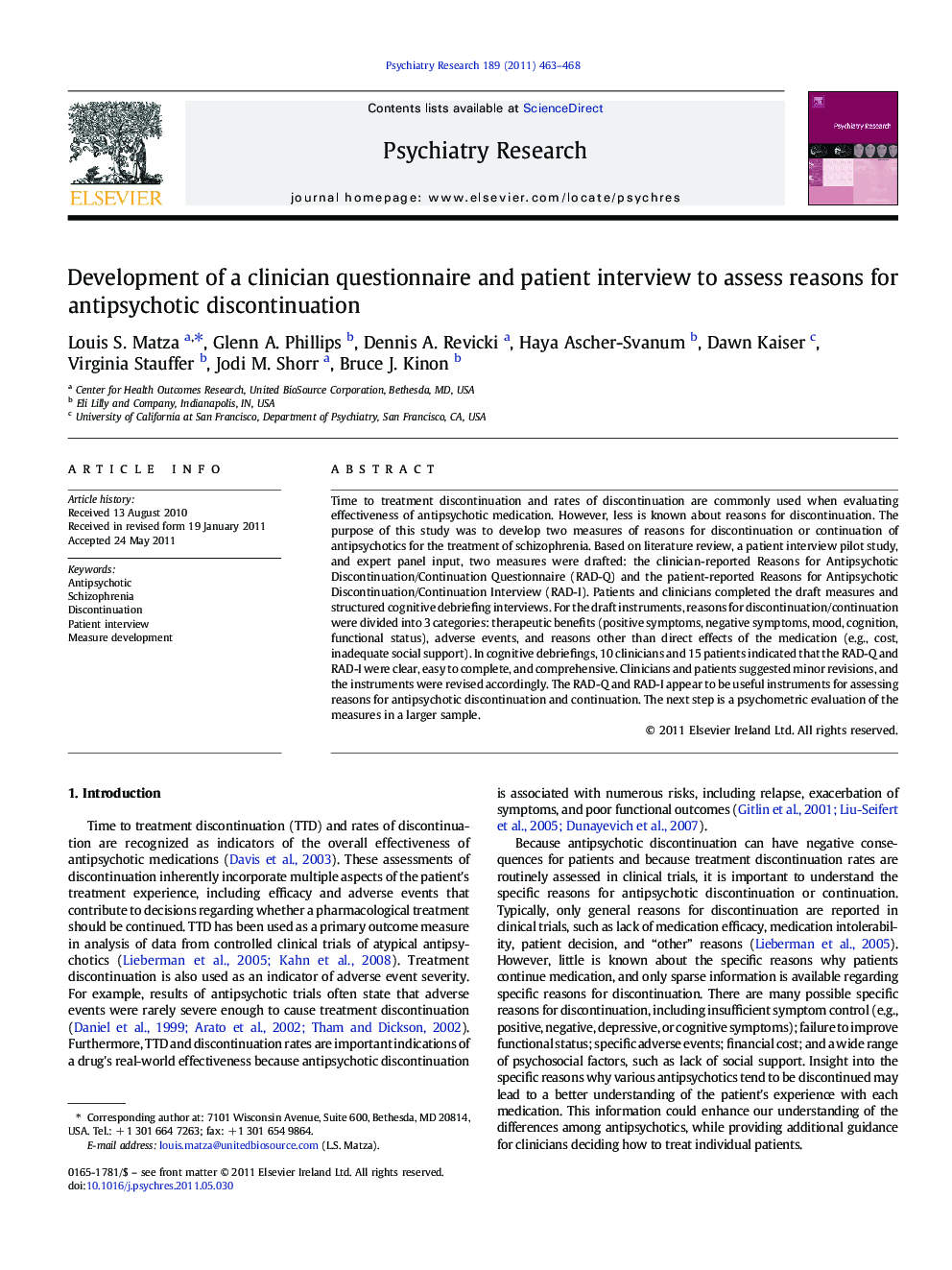| Article ID | Journal | Published Year | Pages | File Type |
|---|---|---|---|---|
| 332202 | Psychiatry Research | 2011 | 6 Pages |
Time to treatment discontinuation and rates of discontinuation are commonly used when evaluating effectiveness of antipsychotic medication. However, less is known about reasons for discontinuation. The purpose of this study was to develop two measures of reasons for discontinuation or continuation of antipsychotics for the treatment of schizophrenia. Based on literature review, a patient interview pilot study, and expert panel input, two measures were drafted: the clinician-reported Reasons for Antipsychotic Discontinuation/Continuation Questionnaire (RAD-Q) and the patient-reported Reasons for Antipsychotic Discontinuation/Continuation Interview (RAD-I). Patients and clinicians completed the draft measures and structured cognitive debriefing interviews. For the draft instruments, reasons for discontinuation/continuation were divided into 3 categories: therapeutic benefits (positive symptoms, negative symptoms, mood, cognition, functional status), adverse events, and reasons other than direct effects of the medication (e.g., cost, inadequate social support). In cognitive debriefings, 10 clinicians and 15 patients indicated that the RAD-Q and RAD-I were clear, easy to complete, and comprehensive. Clinicians and patients suggested minor revisions, and the instruments were revised accordingly. The RAD-Q and RAD-I appear to be useful instruments for assessing reasons for antipsychotic discontinuation and continuation. The next step is a psychometric evaluation of the measures in a larger sample.
